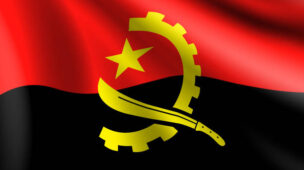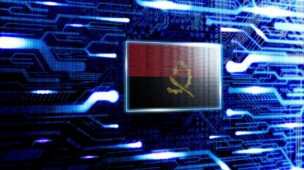
INTRODUÇÃO
No artigo, apresento a Rede de Mediatecas de Angola (ReMA) como uma iniciativa fundamental para o desenvolvimento territorial do país, focando na promoção da educação, inovação social e acesso à informação.
As mediatecas são projectadas como espaços de conhecimento que não apenas facilitam o acesso à informação, mas também promovem a criação de conhecimento e inovação em diversas áreas, como educação, ciência, tecnologia, arte e cultura. Destaco que as mediatecas são equipadas com tecnologia de ponta e oferecem uma variedade de serviços, incluindo acesso à internet, eventos de capacitação e bibliotecas móveis para alcançar populações rurais. Além disso, enfatizo a importância de uma abordagem bidirecional, onde os usuários não são apenas receptores passivos, mas participantes ativos no compartilhamento de conhecimento.
Essa interação reforça a ideia de comunidade, onde o objectivo é construir conjuntamente uma sociedade que contribua para o desenvolvimento regional. As mediatecas, portanto, não apenas apoiam o sistema educacional, mas também fomentam a inovação social e económica, promovendo a competitividade empresarial e a empregabilidade, especialmente entre mulheres e jovens, contribuindo assim para o desenvolvimento socioeconômico de Angola.
INDEX
1. Media Libraries: the concept
2. Present Status
3. Synthesis
The Angola Network of Media Libraries combines not only the characteristics of knowledge spaces while facilitating access to information and knowledge creation.
ReMA – Rede de Mediatecas de Angola (The Angola Network of Media Libraries)
The Angola Network of Media Libraries (ReMA) has as its aim to become a tractor organization for territorial development (economic, education and social), which favors an improvement in the access and generation of knowledge and increasing Angolan human capital potential, counting on the support of the territorial agents, civil society,education socio-economic sector, business, government at all levels and other agents, etc.).
Angola sees ReMA as a Media Libraries Network that combines not only the characteristics of knowledge spaces while facilitating access to information and knowledge creation, but also envisages the promotion of social innovation and offers activities and spaces oriented towards the generation of new proposals or solutions, with and /or for the Angolan society.
The Angola Network of Media Libraries are not only infrastructure and services but also multimedia libraries and repositories of territorial knowledge.
The Concept
ReMA media libraries are repositories of territorial knowledge, that collect and manage not only information, but also knowledge with special emphasis on the access and collection of endogenous knowledge, while providing access to exogenous knowledge. But they are also valuable tools for territorial development (through the stimulation of creativity and social innovation and business), not only within the ReMA strategy itself, but also through the exploitation of synergies with other strategies and approaches at national or local that may have or specific goals, such as entrepreneurship, education, culture and research, among others.
All the provinces of the country will have Media Libraries, ensuring a uniform distribution and access to the entire population.
The Network of Media Libraries
25 Media Libraries:
• 6 already operating;
• 4 to be completed by December 2015);
• 15 planned (till 2017).
1 Media Library for each province, with the province of Zaire having 2 Media Libraries and the province of Luanda having 6 Media Libraries.
The first objective of ReMA is to get access and full participation of the angolan society in the global information and knowledge society.
Objective 1 – Full participation of the Angolan society in the information and knowledge society
To democratize access to information and knowledge, increasing access, use and ownership of the Information Society among the Angolan population, from:
• The expansion of digital citizenship, business and civil society skills;
• The capillarization, from local government policies relating to the Information Society;
• Gathering, preserving and disseminating culture and knowledge, with special emphasis on indigenous knowledge;
• Promote the meeting, exchange and cocreation of knowledge.
Providing access to knowledge and information technology is a way to strengthen the education system of Angola.
Objective 2 – Strengthen the education system of Angola.
• Increasing the opportunities of access to educational content and processes and training;
• Strengthening the processes of teaching and learning;
• Supporting the educational system in its teaching through resources based on Information Technologies and Communication.
Fostering social innovation initiatives, employing women and young people and supporting local communities guarantees that ReMA contributes to the development of Angola.
Objective 3 – contribute to the economical and social development of Angola.
• Supporting the development and improvement of business competitiveness, especially for micro, small and medium enterprises;
• Improving the employability and competitiveness of human capital in Angola;
• Fostering social innovation initiatives and granting power to the Angolan society, as a tool for improving the quality of life.
• Providing greater visibility and international recognition of Angola, enabling it so attract international talent and resources that can contribute to the socioeconomic development of Angola, as well as retain the talent itself.
The focus on Education, Economic Promotion, Science & Technology and Art & Culture contributes to the social innovation, information and knowledge society of Angola.
Focus of ReMA
Education: Supporting the education system as a tool for quality improvement. Strengthening the education system from the perspective of learning throughout life. Social Innovation in Education.
Economic Promotion: Entrepreneurial culture. Social enterprise and entrepreneurship. Business competitiveness based on innovation and ICT.
Science & Technology: Culture and the scientific spirit. Strengthening science, technology and innovation systems. Protection of endogenous scientific and technological knowledge. Fostering research documentary.
Art & Culture: Cultural enterprise economy and culture. Conservation of Cultural Heritage. Awareness and cultural diffusion. Incentives for cultural creation.
The Community
REMA does not have an unidirectional approach in its action where the users participate assuming a passive role as mere beneficiaries. ReMA has opted for a bidirectional approach in which all the activities and services are designed to interact with society. In this way, ReMA gives information and knowledge to users but at the same time ReMA receives information and knowledge from them. We therefore propose the term “community” alluding to its being a “common, public, general, shared by all or many.“ This term delves into the goal of jointly building the society that aims to contribute to regional development. In short, it does not perform the traditional question “for who?”, but addresses a different question through the question “with whom?”.
The activities conducted in the Media Libraries are focused on meeting the needs of local communities, in particular, citizens, educational, academic and scientific community, business sector and civil society.
Some types of activities conducted in the Media Libraries of ReMA.
- Training actions;
- Support to governmental plans;
- Contents;
- Documentation;
- Training fellowships and internship programs;
- Meeting and sharing;
- Contests and awards;
- provision of resources;
- guidance and advice;
- events;
- promotion and strengthening of the activity;
- dissemination and information;
INDEX
1. Media Libraries: the concept
2. Present Status
3. Synthesis
The Media Libraries of Benguela, Luanda and Lubango were inaugurated on August 2012. The Media Library of Soyo was inaugurated on December 2012. The other Media Libraries will be opened to the public up to 2014.
The Media Libraries are broad spaces with many rooms for study, with conference facilities and with full IT equipment (computers, ipads, consoles, etc.) with internet access and knowledge databases.
Benguela:
- Area (m²): 2100
- Number of Rooms: 3
- Internet Connection: Satellite
- IT Equipment: 181
Luanda:
- Area (m²): 2917
- Number of Rooms: 31
- Internet Connection: Satellite and Cable
- IT Equipment: 201
Lubango:
- Area (m²): 2309
- Number of Rooms: 30
- Internet Connection: Satellite
- IT Equipment: 160
Soyo:
- Area (m²): 2387
- Number of Rooms: 28
- Internet Connection: Satellite
- IT Equipment: 160
Huambo:
- Area (m²): 2300
- 1 Auditorium, 35 study rooms, 1 children’s room, 300 PC’s, 5000 books and publications.
Saurimo:
- Area (m²): 2325
- 1 Auditorium, 35 study rooms, 1 children’s room, 300 PC’s, 5000 books and publications.
INDEX
1. Media Libraries: the concept
2. Present Status
3. Synthesis
The ReMA Media Libraries are multi-agent spaces, open to society to strengthen knowledge, cultivate creativity and innovation in all areas (social, educational, scientific, cultural and business).
In Synthesis
The ReMA Mediatecas are oriented to:
• Improving the qualification of human capital in Angola;
• Networking and building joint spaces;
• Modernization of businesses;
• Strengthening and assimilation of the Information Society through the people;
• Taking advantage of the key agents and their knowledge of the territory;
• Discovering the endogenous territorial potential.
Para ter acesso ao PDF clique aqui
Rede de Mediatecas de Angola.
Rua da Liberdade, 152.
Luanda, Angola.






Comments are closed, but trackbacks and pingbacks are open.